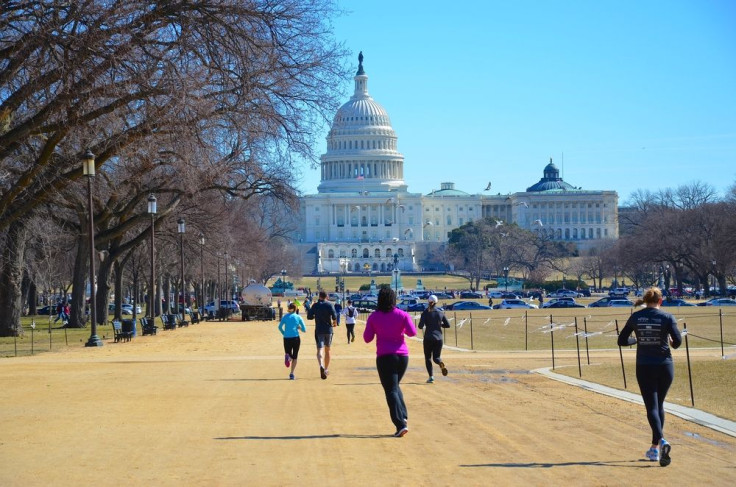American Fitness Index 2014: Washington Among The Healthiest Cities In America And Memphis Is Out Of Shape

If peer pressure is your only motivation to exercise, it may pay to live in Washington, D.C., according to the latest fit cities ranking from the American College of Sports Medicine. People in and around the capital, they say, are the fittest in the country, topping the 50 other largest metropolitan areas.
Taking things like walking, rates of disease and land devoted to parks into account, the so-called American Fitness Index, or AFI, released its seventh annual report on Wednesday. Here's the top of the list and the bottom:
1. Washington, D.C.
2. Minneapolis-St. Paul
3. Portland, Ore.
4. Denver
5. San Francisco
46. Nashville
47. Indianapolis
48. Oklahoma City
49. Louisville
50. Memphis
The report is surprisingly detailed. For example, it shows that more than 80 percent of people in Washington did some kind of physical activity in the last 30 days (72 percent in Memphis), and fewer than 25 percent are obese (35 percent in Memphis). Incidentally — or not — Washington spends $398 per resident on its parks. Memphis spends $26.
"The AFI data report is a snapshot of the state of health in the community and an evaluation of the infrastructure, community assets and policies that encourage healthy and fit lifestyles," said Walter Thompson, chair of the AFI's advisory board, in a statement. "These measures directly affect quality of life in our country's urban areas."
All of the data comes from solid sources, including the U.S. Census Bureau and the Centers for Disease Control and Prevention. And they say they use "scientific methodologies" to verify each data set is legitimate and comparable. According to the report, "Cities that ranked near the top of the index have more strengths that support healthy living and fewer challenges that hinder it. The opposite is true for cities near the bottom of the index."
In all five of the least healthy cities, for example, at least 20 percent of the population smokes. Meanwhile, all of the five healthiest cities had smoking populations below 20 percent. (Only one in 10 San Franciscans smokes.) Thomas tells USA Today that even though Washington tops the list based on the way they assigned point values, "the differences among them are probably not remarkable."
Reports like this are amusing for people, but their authors — a huge team of PhDs and MDs — say the AFI is a vital tool for public health policy. “Health advocates and community leaders have come to expect the arrival of the American Fitness Index as an annual check-up regarding their community’s health and fitness levels,” Thomas said. This year's rankings cost more than $150,000 to produce, paid for by a grant from the WellPoint Foundation.



























